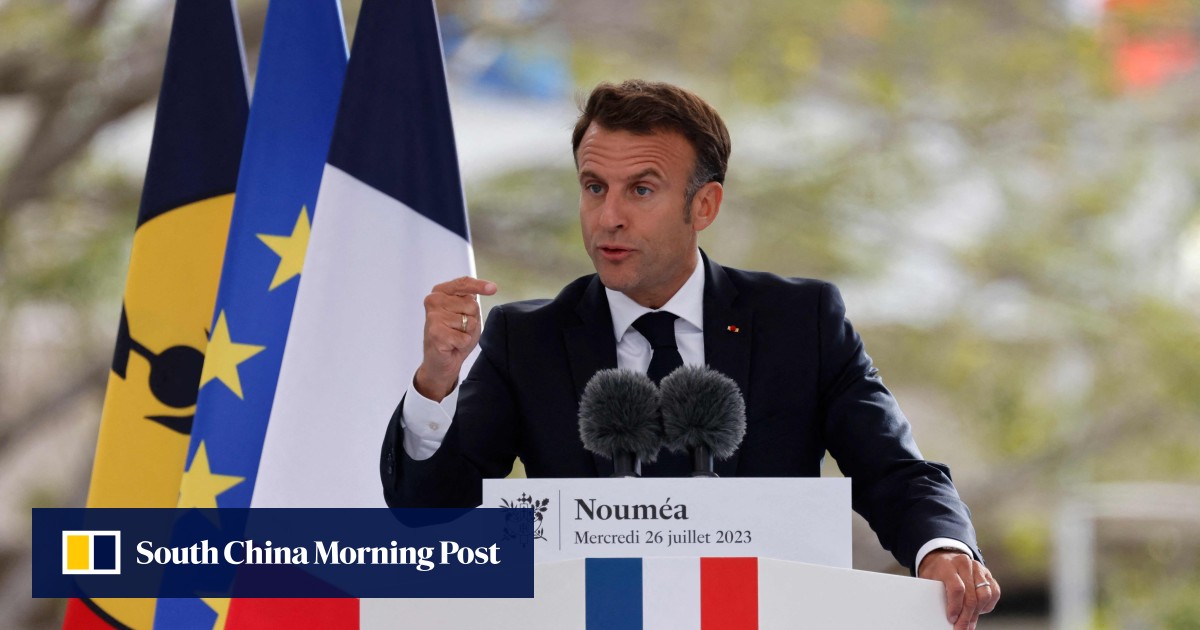A major diplomatic counteroffensive against Beijing’s influence in the Indo-Pacific is fully under way, and there’s no better sign than Western leaders visiting the region’s once-neglected islands – all at once.
The most prominent figures island-hopping this week include French President Emmanuel Macron and US Secretary of State Antony Blinken. And US Secretary of Defence Lloyd Austin also travelled to Papua New Guinea, while Britain’s Armed Forces Minister James Heappey stopped in Fiji.
Creating the most buzz among the Western guests is Macron, who during a visit to the nickel-rich French overseas territory of New Caledonia warned of “Chinese naval bases tomorrow” if the strategically located archipelago gained independence.
“If independence means that tomorrow you’ll decide to have a Chinese base here, or to be dependent on another maritime fleet, good luck with that – that’s no independence,” he said on Wednesday in Noumea, the New Caledonian capital.
He called on pro-independence indigenous Kanaks to accept the pro-France third and final self-determination referendum of 2022. The Kanaks boycotted that vote and the negotiations on the territory’s status under France remain deadlocked.
“We need to come out of the face-to-face tensions, which is the only way that will allow the path of the future of New Caledonia in the republic and in the Pacific,” Macron urged.
France maintains naval bases in New Caledonia, which was declared a French convict colony by Napoleon III in 1853. The first two independence votes, held in 2018 and 2020, favoured French rule. However, pro-independence votes have increased over time with recent gains in the Kanak population.
Macron’s efforts to preserve the vestiges of France’s colonial empire were on full display in New Caledonia, but during his visit to Vanuatu he cautioned against “new imperialism”.


